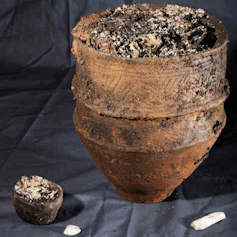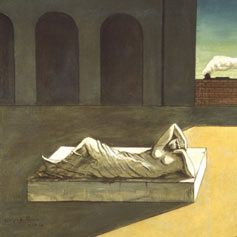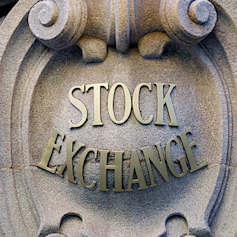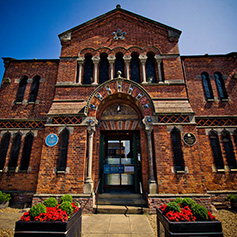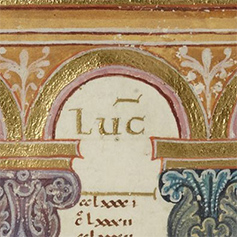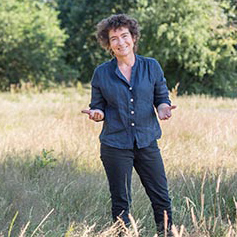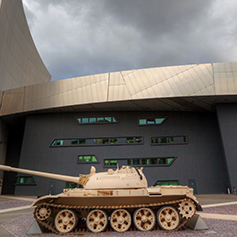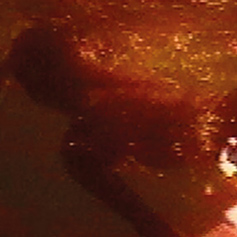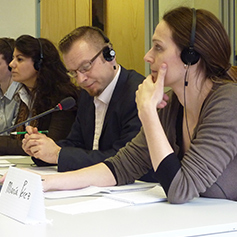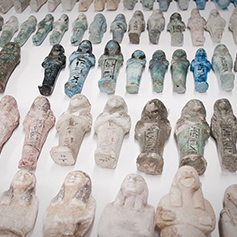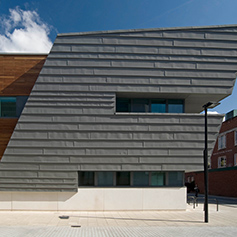Centres and Institutes
University Institutes
Our two major research institutes are the John Rylands Research Institute and Library (Rylands), which promotes research into the world-class special collections of The University of Manchester Library, and the Humanitarian and Conflict Response Institute (HCRI) which conducts rigorous research on the impact and outcomes of contemporary and historical crises.
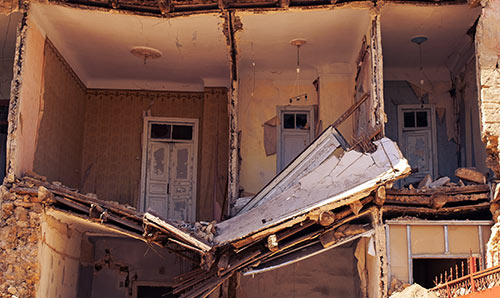
Humanitarian and Conflict Response Institute (HCRI)
HCRI conducts rigorous research on the impact and outcomes of contemporary and historical crises.
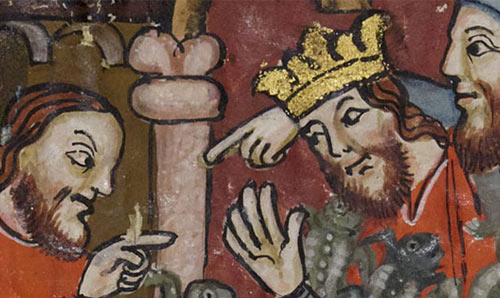
The John Rylands Research Institute and Library
Bringing together experts from The University of Manchester Library and the Faculty of Humanities.
Centres
The research we do reflects strong interdisciplinary links across the disciplines. Our overarching Centre for Interdisciplinary Research in Arts and Languages (CIDRAL) promotes the considerable variety of synergies across the school and showcases some of our best interdisciplinary work.
-
Manchester Centre for Archaeology and Egyptology
MCAE is a hub for all archaeology-related matters at The University of Manchester.
Read more
-
Centre for Biblical Studies
The Centre for Biblical Studies is home to all the University's postgraduate and staff activity in Biblical Studies.
Read more
-
Centre for Digital Humanities, Cultures and Media
The Centre brings together a diverse range of researchers with digital interests and acts as the hub for Digital Humanities, Cultures and Media research in SALC.
Read more
-
Centre for Interdisciplinary Research in Arts and Languages (CIDRAL)
CIDRAL organises events around particular themes in order to facilitate debate across a range of diverse topics.
Read more
-
Centre for Economic Cultures
Investigating the cultural assumptions and social relationships that have shaped economic activity from the medieval period to the present day.
Read more
-
Centre for Jewish Studies
The Centre acts as a focus for Jewish Studies at the University of Manchester and also as the hub for the Northern UK Jewish Studies Partnership.
Read more
-
Centre for Latin American and Caribbean Studies
Bringing together a diverse range of researchers from across the Faculty of Humanities.
Read more
-
Centre for Medieval and Early Modern Studies
Established in 2017, the centre cuts across History, Literature, Art History, Classics and languages, and is home to the MA in Medieval and Early Modern Studies.
Read more
-
Centre for New Writing
Established and award-winning writers teach fiction and poetry as well as hosting Literature Live events and publishing the online journal, The Manchester Review.
Read more
-
Centre for the Cultural History of War
A research and teaching centre which has close links with the Imperial War Museum North.
Read more
-
Centre for the Study of Sexuality and Culture
CSSC is the first research facility in the UK to focus exclusively on the interrelationships of sexuality, gender, culture, and history.
Read more
-
Centre for Translation and Intercultural Studies
CTIS makes up the largest concentration of translation and interpreting studies specialists in the UK, and among the largest worldwide.
Read more
-
Institute for Cultural Practices
ICP provides a platform for innovative research, postgraduate teaching and professional development which engages with cultural producers and organisations.
Read more
-
NOVARS
Founded in 2007, NOVARS specialises in areas of Electroacoustic Composition, Performance and Sound-Art.
Read more
SALC Research Groups & Networks
- Abusing God: Reading the Bible in the #MeToo Age Network (lead: Dr Holly Morse)
- American Studies (lead: Dr Michelle Coghlan)
- Bodies, Emotions and Material Collective (lead: Professor Stefan Hanss)
- CareLab
- dutch-UK Network (Institute of Sonology at the Royal Conservatory of The Hague and the Music Composition department in Manchester)
- Empire and After (lead: Dr Howard Booth) – ‘Empire and After’ is a research group in English, American Studies and Creative Writing (EACW) that addresses colonial and postcolonial writing and film; approaches to the field are also discussed and evaluated, including postcolonial studies, world systems theory and the various uses of the word ‘decolonisation’. Members of the group collaborate nationally and internationally, and organise research events, in addition to supervising many doctoral students.
- Environment and Ecologies (lead: Dr Clara Dawson) – 'Environment and Ecologies' brings together a group of colleagues researching literature and the environment. Ranging from weeds, peat, birds, animals, food webs, trees, Environment and Ecologies' research examines the history of our relations with more-than-human others in the context of the climate crisis, aiming to enhance our understanding of our embedded place in global ecologies.
- Europe and the Wider World (lead: Dr Jo Laycock)
- Fear Research Network (FeRN) lead: Professor Erica Baffelli and Dr Chika Watanabe – FeRN aims to develop critical innovations in the study of fear through an international and interdisciplinary research group that brings together researchers interested in the politics, feelings, and practices that converge around fear from historical and contemporary perspectives
- Histories of Humanitarianism (lead: Professor Bertrand Taithe) – 'Histories of Humanitarianism' is a network of researchers across the School which research aspects of the history of humanitarian aid. This network has a research seminar convened by Dr Maria Cullen of the Developing Humanitarian Medicine Wellcome project. This group also involves scholars in the North of England in their events and research activities.
- Linguistic Diversity Collective
- Modern British Studies (lead: Dr Max Jones)
- International Manchester Beethoven Research Symposia (lead: Barry Cooper) – This informal research group, inaugurated in 2009 and directed by Professor Barry Cooper, is devoted to the exploration of the life and works of Beethoven.
- Medieval History (lead: Dr Charles Insley)
- Music, Health and Wellbeing (lead: Professor Caroline Bithell)
- Politics, Institutions and Policy Research Group (lead: Dr Christian Goeschel) – This research group focuses on the modern histories of politics, policy and its institutions broadly conceived, including political discourses, official and popular politics in their national, transnational and global formations. Politics, Institutions and Policy has regional breadth, with specialists working on Britain, continental Europe (France, Germany, Italy, the Soviet Union), the USA, and West Africa.
- Race, Roots & Resistance (RRR) Collective (lead: Dr Kerry Pimblott) – 'Race, Roots & Resistance' is a democratic collective of staff, students and community members dedicated to the critical study of race and its impact on the lived experiences of people across temporal and spatial boundaries. RRR is a multidisciplinary group with broad specializations in the Arts, Humanities, Social Sciences and, where relevant, the Natural Sciences.
- Radical Approaches from the Global South (RAGS) (lead: Professor Anindita Ghosh) – A major aim of RAGS is to research the methodological approaches of the Global South and understand how such approaches might re-orientate world histories away from ‘metropolitan’ knowledges and towards a global history told through local and regional perspective. Several members have an intrinsic interest in the intellectual history of the Global South, scrutinising intellectual traditions that present only one understanding of concepts such as political economy, sovereignty and race.
- Radical Formations, Cultural Materialism (lead: Dr Douglas Field) – This research group brings together English, American Studies and Creative Writing's expertise in materialist theories of culture and the analysis of the cultural dimensions of anti-capitalist politics. It comprises David Alderson, Michelle Coghlan, Molly Geidel, Doug Field, Ingrid Hanson, Ben Harker and Mike Sanders.
- ReFormations (lead: Professor David Matthews) – 'ReFormations' brings together (but need not be limited to) scholars of the literary cultures of premodern Britain. While some are engaged in the impact of the English Reformation in the strict sense, others are engaged more loosely with ‘reformation’ in a range of senses. Work in the research grouping emphasises the way in which 'reform' is plural, and involves 'form' as much as it does 'reform'.
- Russian Media, Propaganda and Disinformation Research Group (leads: Professor Vera Tolz and Professor Stephen Hutchings) – This grouping focuses on contemporary and historical developments in the Russian media landscape, including those relating to nation-building, race, ethnicity, memory politics and identity. It also explores the Russian state’s propaganda, public diplomacy and soft power strategies and its involvement in the production and dissemination of disinformation along with target audience and oppositional responses to these phenomena, taking care to situate them in a global communications context, and adopting a critical, comparative and theoretically informed approach to their study.
- States of Flux (lead: Dr Roddy Hawkins)
- Sonic Cultures (lead: Dr Roddy Hawkins)

